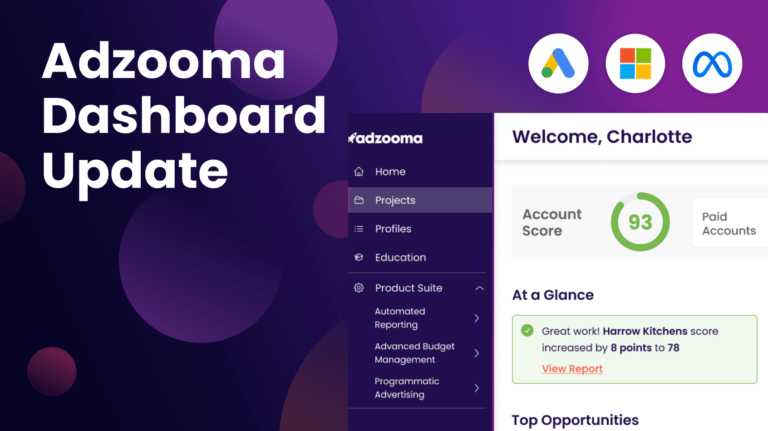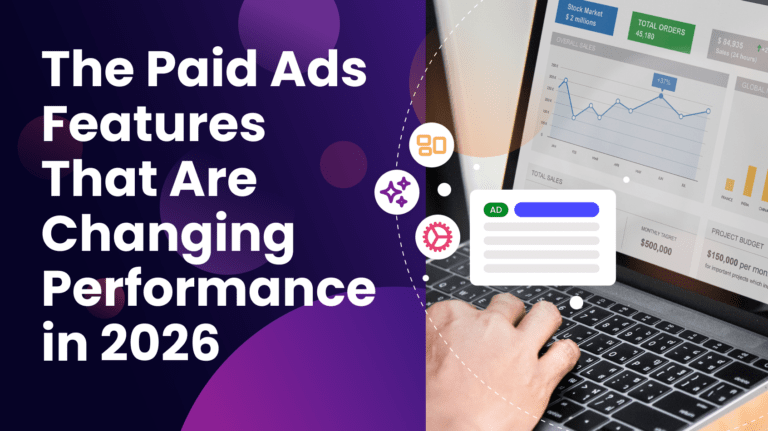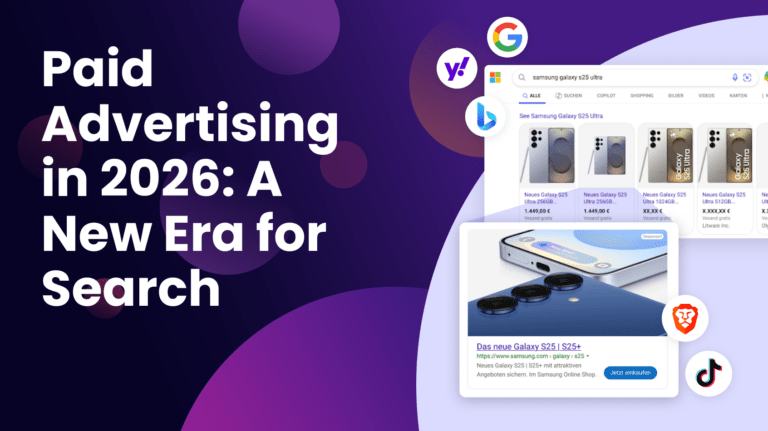PPC has long been a cost-effective way of helping to grow a business’s brand, achieve high profits, and gain customers.
However, despite PPC advertising being a great way of achieving long term growth and revenue, it’s only successful if your ROI (return on investment) and budgeting are managed efficiently. It’s also important that the right PPC management tools are used.
So this guide will show you how to budget for your PPC campaigns the smart way.
What is PPC budgeting?
When starting a PPC campaign, the first thing to look at is your budget. A PPC budget is the amount of money that you want to spend on online advertising, whether that’s to boost brand awareness, increase sales, email sign-ups, or any other acquisition efforts.
But how do you do this?
Well, the method that you take to create your PPC budget depends on several factors
- Your location
- Cost-per-click (CPC)
- Conversion rate
- Lead quality
- Visitor frequency
A good strategy to start with is the SMART goals model.
SMART goals
SMART stands for Specific, Measurable, Achievable, Realistic and Timely and each part acts as a stage for achieving goals. They provide a clear road map for your campaign and align with your priorities and capabilities.
An example of a SMART PPC goal could be achieving a 15% increase in revenue in the next 12 months. Using SMART could look like this:
- Specific – the goal: a 15% increase in revenue in the next 12 months through PPC campaigns.
- Measurable – the percentage increase your business sees each month (when looking into the above example this would be 1.8%). This should be measurable by a pre-agreed standard.
- Attainable – perhaps the most important part, this will involve you factoring in your business’ past performance, profitability requirements, changes within your infrastructure, the current economy and any other elements could affect your PPC goals. By creating attainable goals, you’ll have a measurable standard of results to work with.
- Realistic – your goals for your PPC campaigns should also be realistic. For example, if you’re a smaller business, you need to know that your campaigns might not bring in as much profit as that of a large organisation with a higher ad spend and brand following.
- Timely – this is when you expect your goal to be achieved. In the above case, it’s 12 months.
Why is budgeting so important in PPC?
Whether you’re a small business or a larger enterprise, it’s vital that you set a budget for every PPC campaign you run. Why? Because without a clear budget, you’ll spend far more than you should and won’t be able to calculate your cost-per-conversion.
That means less profit and a significant dent in your finances.
Budget mismanagement can cause serious financial ramifications outside of advertising so keep a lid on your spending and know where your money is going.
Approaches to budget management
Each business will take a different approach when it comes to managing their PPC budget. However, it’s a good idea to utilise a PPC budget calculator and management software in order to determine how effective the campaign has been.
In terms of PPC metrics, you should pay attention to the following (keeping in mind your ad spend and your overall goals):
- Cost-per-click (CPC)
- Setting a minimum number of clicks per day
- The value per conversion
- Your competition
- The maximum weekly/monthly/yearly spend
- Maximum bid per click
70/20/10
Another effective way of managing your budget is by spreading your budget throughout the campaign period, so that you earn more leads overall. You could also split your budget using the 70/20/10 model, championed by PPC Hero. This approach breaks your budget down into three parts:
- 70% of your budget allocated to constantly-running or “evergreen” campaigns
- 20% of your budget allocated to campaigns that have a high probability for success
- 10% of your budget allocated to brand new ideas
This method ensures your budget is utilised in the best possible way and can be tweaked depending on your success rate.
Seasonality
Alternatively, by researching revenue trends and search volume trends you could plan your PPC budget according to seasonality. This way, you’ll be able to effectively manage your budget as you have particular times of the year that keywords are more active. Planning and executing a seasonal campaign can be difficult but taking a pragmatic approach is the best way to go.
How much should you spend?

It’s no secret that you’ll have to spend money in order to make money. However, the question still remains: how much should spend on a campaign?
Your annual budget for your PPC is a key part of your overall strategy, therefore it’s essential to figure out the ways in which you can make the most out of your spend. For example, you could do the following:
Calculate cost estimates and work backwards
By first estimating how much the campaign will cost, you’ll be able to work backwards to determine how much you should invest in getting the project off of the ground as well as estimates for metrics like return on ad spend (ROAS), cost-per-click (CPC), cost-per-lead (CPL), and cost-per-conversion.
Be flexible
As part of setting a budget for your ad spend, you need to be flexible. You’ll need for your goals to be attainable (per your SMART goals) therefore, you need to determine how much profit you want to achieve whilst paying attention to a variety of factors along the way.
STAGs (single theme ad groups)
Although SKAGs were a long-used strategy back in the day, STAGs have long since taken over. Arguably most suitable to use when taking advantage of close variants, this strategy allows you to have multiple keywords that are centred around particular themes and sub-themes.
Another benefit is that you can align the set budget with the profit – something that was far more difficult to track with SKAGs.
Using data science
An umbrella term that encompasses all major data analysis fields including predictive analytics and statistics, data science can be used to generate invaluable insights that assist with PPC budgeting.
For example, by using it, you could determine when customers are more likely to buy. Through this, you can then automatically increase your bids to efficiently reach the widest possible audience during this time.
Key PPC budgeting terms
There are several key PPC budgeting terms that you should pay attention to, including the following:
ROI – Return on Investment is a tool that will measure the amount of money that you gain or lose in relation to how much you initially invested. Typically expressed as a percentage, it’s essential to use in PPC budgeting. The formula for it is as follows: ROI = (Net Profit/ Investment Cost) x 100.
Ad Spend – Ad Spend is the amount of money that’s spent on a particular advert. A business will typically look at how this has increased/decreased over the past year and factor it into their new PPC budget.
ROAS – Return on Ad Spend determines the efficiency of the PPC campaign. By using the formula ROAS = Campaign Revenue/Cost of Campaign, you’ll be able to see how effective the ad has been, in comparison to how much revenue you received for it.
CPC – Cost Per Click is the price that you pay for each click within your PPC campaign. Representing an interaction with the ad or a direct visit, it’s a vital factor in understanding how successful it’s been.
CPA – Cost Per Action directly measures how much your business has invested in exchange for a conversion. This will typically be higher than your Cost Per Click as fewer leads will convert.
CPL – Cost Per Lead is the amount that you invest in order to obtain new leads. To calculate this, you can use a CPL formula; such as – the cost of your ad spend/total attributed leads.
PPC budgeting tools
By using budgeting tools, you’ll be able to change your budget at any time and effectively track how much you’re spending. In order to optimise your budget, you could use PPC software such as Adzooma.
A platform that assists with the management of your budget, it has a mixture of custom-built software, as well as incorporating suggestions from Facebook Ads and Google Ads.
Conclusion
Overall it’s clear to see the importance of PPC budgeting and why it’s something that you should be doing from the get-go. Of course, every business’ approach to budget management will be different.
And it will depend on several factors including your preferences, overall goals and ad spend. However, when done effectively, it can result in very effective PPC campaigns that bring in favourable sales. Just make sure that from the start, you’re using the right budgeting tools and software to get the job done.




